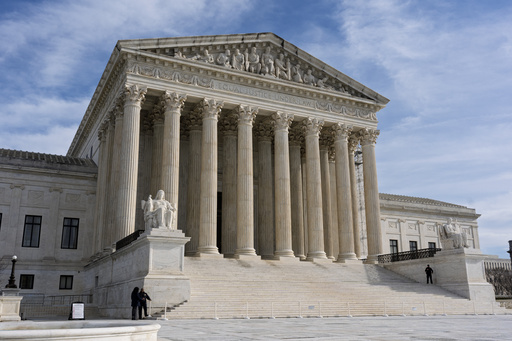WASHINGTON — On Wednesday, the Supreme Court appeared receptive to a Texas law designed to prevent minors from accessing online pornography. However, the justices expressed the possibility of sending the matter back to a lower court to further evaluate how the age verification requirement impacts the free speech rights of adults.
Texas is one of over a dozen states that have enacted laws targeting the accessibility of pornography to young audiences. Supporters of these laws argue that the widespread availability of explicit content on devices like smartphones poses significant risks to children and teenagers.
Chief Justice John Roberts, who is part of the court’s conservative majority, echoed concerns about the ease of access to pornography in the digital age, stating, “Technological access to pornography has exploded, right?”
Opponents, including the Free Speech Coalition, a group representing the adult entertainment industry, contend that the Texas law inadvertently infringes upon adult freedoms. They argue that the requirement for individuals to provide personal identifying information online raises security concerns, as such data could be exposed to hacking or unauthorized tracking. Notably, the adult-content website Pornhub has ceased operations in several states, citing compliance difficulties tied to privacy laws.
While the Free Speech Coalition agrees with the notion that minors should be shielded from explicit content, they argue that the Texas law is overly broad, potentially encompassing educational materials about sexuality or simulated sexual scenes in cinema.
Additionally, the law concentrates on adult entertainment websites rather than focusing on the search engines frequently used to access such content, creating what the coalition describes as a significant loophole. They assert that implementing content filtering systems may be a more effective solution than imposing age verification checks online.
Justice Amy Coney Barrett expressed skepticism about the efficacy of content filtering across various devices, particularly given her experiences as a parent of seven children. “Content filtering for all those different devices, I can say from personal experience, is difficult to keep up with,” she remarked.
The Supreme Court has previously addressed similar topics. In 1996, it invalidated portions of a law prohibiting children from viewing explicit content online. Then, in 2004, a divided court ruled against a different federal law aimed at protecting minors from pornographic exposure but affirmed that less restrictive strategies, like content filtering, are constitutional.
Texas defends its position by asserting that advancements in technology over the past two decades allow platforms to verify users’ ages efficiently, likening this process to traditional ID checks upheld by the Supreme Court in the 1960s.
Recently, the 5th Circuit Court of Appeals sided with the states, permitting the implementation of the age verification law after overturning a lower court’s decision. The Supreme Court previously refused an emergency application to pause the law while the legal challenges persist.
Several justices expressed concern that the lower court did not sufficiently apply stringent legal standards when determining the law’s potential conflict with the First Amendment. Justice Ketanji Brown Jackson questioned the extent to which a state can impose burdens on adults to verify their age.
Justice Elena Kagan noted the potential “spillover dangers” that a ruling could have on other laws affecting free speech.
Some justices showed interest in the Biden administration’s suggestion to send the case back to the 5th Circuit for additional consideration. They noted that laws addressing age verification could meet a higher constitutional threshold if carefully crafted since there is a consensus on the importance of protecting children from pornography, as articulated by Principal Deputy Solicitor General Brian Fletcher.
Other states enacting similar laws include Tennessee, Arkansas, Indiana, Kansas, Louisiana, Mississippi, Montana, Oklahoma, Utah, and Virginia. The Texas law stipulates substantial fines for violations, potentially reaching up to $10,000, which can escalate to $250,000 for infractions involving minors.
The Supreme Court is anticipated to render its decision on this case by June.




